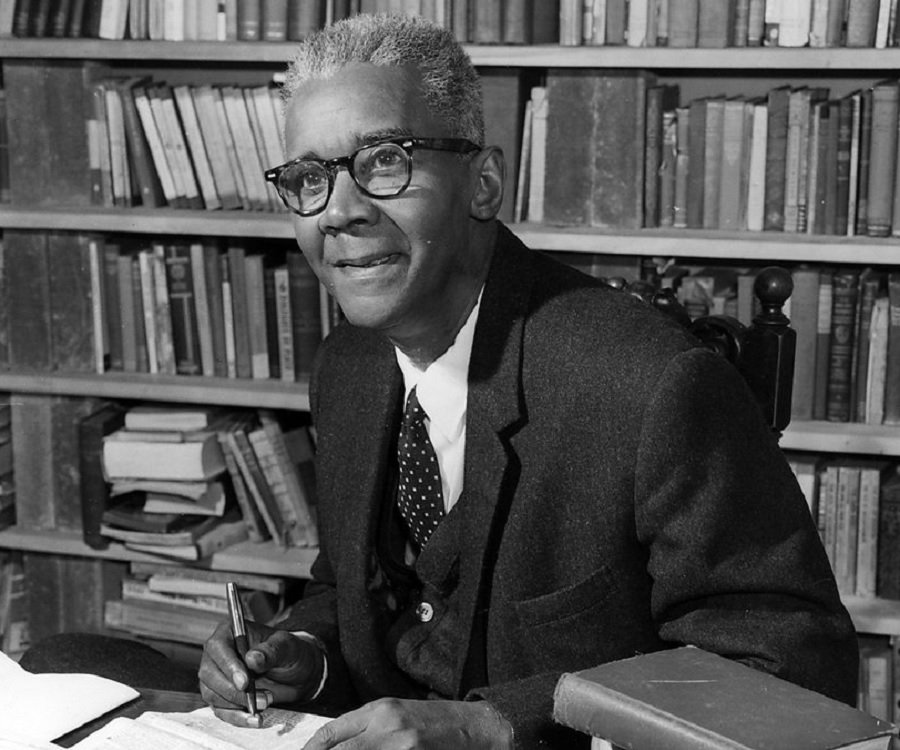Cyril Lionel Robert James was born in the British colony of Trinidad on January 4, 1901. James was a bright youth who absorbed literature, history, music, sports, and art-the foundational texts of Western civilization. He attended Queen’s Royal College in Port of Spain, but chafed at the rigid disciplinarianism of the educational British system. Yet he was deeply interested in and influenced by the game of cricket introduced by the British and became a local cricket reporter before turning to fiction. James wrote several early works of fiction in Trinidad before sailing for England in 1932 at the age of 31. While in England, James spent a great deal of time focusing his writing on issues relevant to the expatriate West Indian community. He published The Case for West Indian Self-Government in 1933.
James was increasingly exposed to social issues and turned to the writings of many Communist thinkers in this period. He became a major Trotskyist thinker as well as an ardent critic of fascism. He produced a play, Toussaint L’Ouverture, with Paul Robeson in the lead role which reflected his political leanings. James was becoming more interested in revolution and social liberation as well as questions of race. He published his landmark work, The Black Jacobins, in 1938, offering a Trotskyist analysis of the 1791 slave revolution in Haiti. James and his fellow Trotskyites remained opposed to Stalinism and offered virulent critiques of the system throughout the 1930s.
C.L.R. James arrived in the United States in 1938 and remained for the next twenty years. While in the U.S., he began to have doubts about the Trotskyist analysis of the Soviet Union and argued for a liberation of Marxism through a bottom-up emphasis. He also studied Whitman and Melville in this period. James returned to England in 1953 and five years later went back to his native Trinidad where he became involved in politics and the decolonization movement. James published Beyond a Boundary in 1963, a memoir and social commentary, that explored the place of cricket in West Indian and British society and its role in empire, family, masculinity, race, class, national culture, colonization, and decolonization. The work is widely viewed by critics as one of the best sports books ever written.
After 1960 James traveled widely throughout Africa and the Caribbean and was interested in the role of culture across boundaries. As a West Indian deeply-infused with Western culture, he sought to carve out a space of independence while still maintaining his love for what he saw as a series of cross-national ideals. He taught at the University of the District of Columbia starting in 1968 and wrote a series of works on culture, politics, radicalism, and revolution. James passed away on May 19, 1989 in London, England, on the brink of the collapse of the Soviet Union. He was survived by his widow Selma.
"When history is written as it ought to be written, it is the moderation and long patience of the masses at which men will wonder, not their ferocity."
- CLR James
C.L.R. James: A Revolutionary Vision for the 20th Century

Megathreads and spaces to hang out:
- ❤️ Come listen to music and Watch movies with your fellow Hexbears nerd, in Cy.tube
- 💖 Come talk in the New Weekly Queer thread
- 💛 Read and talk about a current topics in the News Megathread
- ⭐️ September Movie Nominations ⭐️
reminders:
- 💚 You nerds can join specific comms to see posts about all sorts of topics
- 💙 Hexbear’s algorithm prioritizes comments over upbears
- 💜 Sorting by new you nerd
- 🌈 If you ever want to make your own megathread, you can reserve a spot here nerd
- 🐶 Join the unofficial Hexbear-adjacent Mastodon instance toots.matapacos.dog
Links To Resources (Aid and Theory):
Aid:
Theory:



Problems with Far Cry 6 so far.
1: You can get a tiny dachshund companion who can sit in your side car if you drive a motorcycle, but you cannot see it from the first person perspective
2: Half the NPCs are just assholes who you have no reason to keep alive, and you CAN actually just shoot some them but you can't progress the story until you go over and revive them. Like why is this black market guy acting like a smug asshole talking about how he's got my by the balls when I'm standing in front of him with a trained crocodile, a shotgun pointed at his nuts, and absolutely no in story reason to want to keep him alive? (In fact, several of my problems would be fixed if I just shot him)
3: There's a cockfighting minigame and its by far the most involved one, involving collecting new "fighters" through sidequests and collectables. The arena is covered in blood. It's just there. One of your companions is a cockfighting chicken that was so good at cockfighting it became a guerilla (Yes). It's an aspect of some latin american cultures I suppose, but it's also a part of some south east asian cultures and they had the fucking sense to not put that in the south east asian far cry.
4: Enemies just spawn near you and often in ways that don't make any fucking sense. If you do the fishing minigame suddenly there's like 10 boats that have grounded themselves trying to get close to you.
5: Enemies are bullet sponges so there's no reason to use anything but the instant kill weapons. I could empty an entire magazine from my assault rifle into every single enemy, or I could shoot them once with the bow and move on.
6: There's roughly a billion kinds of collectible.
Noooooo you can't kill the human trafficker who you witnesses sell people into slavery because.... because the story we wrote wouldn't make sense if you did.
THEN DONT PUT HIM WHERE I CAN SHOOT HIM YOU IDIOTS